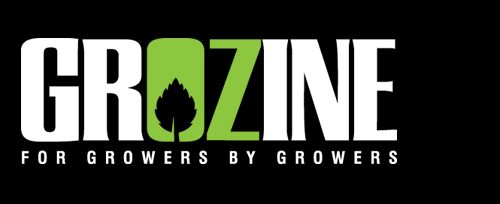
Born in the pandemic, London-based Farmia has left its old home and is set to expand its business
Carbon Negative Indoor Farming | Colin Butler |
A London, Ont., agriculture technology company has announced an ambitious new plan that will see its operations move from a former cereal factory to a local mushroom farm, where it will expand production and create a zero-waste farm system ( carbon negative farming ) it says will help feed an increasingly hotter world.
Farmia first moved to London in the fall of 2021, taking up residence inside the cavernous warehouse of the city’s former Kellogg’s cereal plant — enough space for Farmia’s soaring towers of hydroponic greenery to stretch to the ceiling, filling the otherwise dark space with vertical rows of bright leafy greens, nurtured under the glow of high tech grow lights.
“We chose Kellogg because its the biggest indoor entertainment area in Canada,” Mohamed Zayed, Farmia’s co-founder and chief operating officer told CBC News, noting the large windows overlooking the huge room allowed the public to get a peek under the hood of a technology Zayed hopes will help change the planet for the better.
“It is very sustainable. We use a lot less space and a lot fewer resources to create a lot more product consistently and year-round.”
Locally-grown food for a hotter world
With no soil and no growing seasons, Zayed’s technology can reliably produce 640 edible plants in less time than it takes to grow a similar crop outdoors, using the same amount of water it takes for a 10-minute shower — a technology Zayed said can eliminate the wild price fluctuations and e. coli outbreaks that come with the way we farm now.
“Weather fluctuation doesn’t affect us. We work in a semi-sterile environment, and the risk that you get an unhealthy byproduct on the food you consume is zero.”
Now the company is set to expand, inking a deal with Whitecrest Mushrooms in November. Whitecrest owner Murray Good did not return a request for comment from CBC News by publication time.
For Farmia, it means moving its operations from the former Kellogg building to Whitecrest’s sprawling property 20 minutes away in Putnam, Ont., where the two companies combine their expertise to create what’s called a “closed-loop circular economy system” — a farming model that claims to generate zero waste.
“We do that through our four-phase production system of leafy greens, flowering plants, staple crops and mushrooms.”
Farmia sells its technology abroad
Unlike plants, such as cucumbers, tomatoes and leafy greens, mushrooms produce carbon rather than consume it. What Farmia and Whitecrest will do is make mushroom farming carbon-negative by feeding the growing plants the byproduct created by the fungus.

“We’re basically like a CO2 converter, we create oxygen and pump it out into the environment from a very CO2-intensive industry, and beyond that, we’re 99 per cent more efficient than regular farming with water and fertilizer.”
The new facility will also bring in air from the outside to extract carbon from the atmosphere to keep the plants well-fed, which Zayed says will keep humans well fed too.
“Nothing comes out of our production cycle aside from food that you can utilize and eat straight away. It’s non-GMO, pesticide-free, it’s better than organic.”
The company has already exported its patented technology abroad, selling its systems to arid countries like Egypt, Saudi Arabia and Dubai. Zayed said Farmia is helping establish commercial-scale farms capable of growing wheat and rice — even in the scorching desert, where daytime temperatures climb as high as 50C.
Farmia was also invited by the Egyptian Ministry of the Environment to present its technology at the COP27 Summit in Sharm El-Sheik. Zayed said the same technology that can create food in the desert could also work in Canada’s north, where produce is often expensive because it must be shipped by air.
“We are facing climate change. We are running out of arable land. We are increasing in population rapidly, and we are providing a solution to that.”
Original Article: https://www.cbc.ca/news/canada/london/vertical-farming-food-security-farmia-1.6699741



